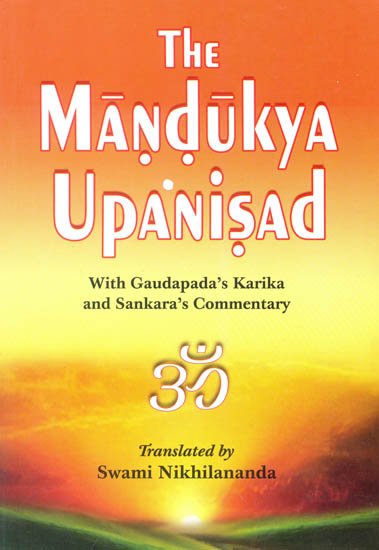Mandukya Upanishad (Gaudapa Karika and Shankara Bhashya)
by Swami Nikhilananda | 1949 | 115,575 words | ISBN-13: 9788175050228
This is verse 4.60 of the Mandukya Karika English translation, including commentaries by Gaudapada (Karika), Shankara (Bhashya) and a glossary by Anandagiri (Tika). Alternate transliteration: Māṇḍūkya-upaniṣad 4.60, Gauḍapāda Kārikā, Śaṅkara Bhāṣya, Ānandagiri Ṭīkā.
Mandukya Karika, verse 4.60
Sanskrit text, IAST transliteration and English translation
नाजेषु सर्वधर्मेषु शाश्वताशाश्वताभिधा ।
यत्र वर्णा न वर्तन्ते विवेकस्तत्र नोच्यते ॥ ६० ॥nājeṣu sarvadharmeṣu śāśvatāśāśvatābhidhā |
yatra varṇā na vartante vivekastatra nocyate || 60 ||60. The epithets of permanence or impermanence cannot be applied to unborn Jīvas. That which is indescribable by words cannot be discriminated (as real or unreal).
Shankara Bhashya (commentary)
From the standpoint of the Ultimate Reality, no epithet such as permanence1 or impermanence, nor any sound corresponding to such names, can be applied to Jīvas (selves or beings) which are eternal, birthless, and which are always of the nature of a homogeneous consciousness. That by which an object is designated is known as “Varṇa” or name associated with a sound. The words fail to denote the nature of Ātman. It cannot be discriminated as this or that, permanent or impermanent. The Śruti also says, “Whence words fall back,” etc.
Anandagiri Tika (glossary)
1 Permanence, etc.—Such epithets as permanence or impermanence which are correlatives, are applied to the objects of the relative world.
